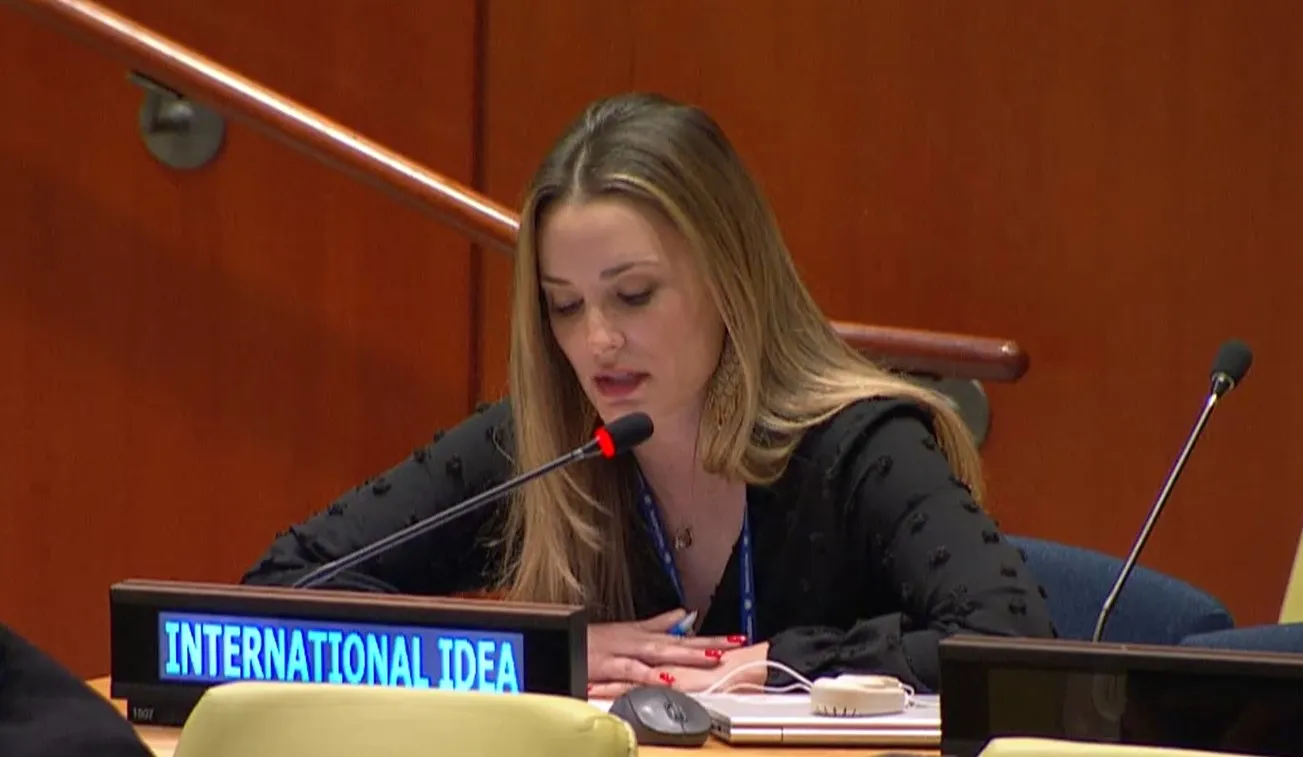Informal Interactive Dialogue on the Implementation of the Pact for the Future – Monitoring and Evaluation

Pact for the Future: Interactive Dialogue on Monitoring and Evaluation
19 May 2025, UNHQ, New York
Statement by International IDEA
Mr. President, Excellencies,
SDG 16—on peace, justice, and strong institutions—is not just a standalone goal; it is the bedrock upon which the success of the entire 2030 Agenda and the implementation of the Pact for the Future depends on. The Pact outlines an ambitious vision for a more just, equitable, and sustainable world. But without inclusive governance, access to justice, accountable institutions, and respect for the rule of law, these aspirations risk remaining unfulfilled.
When institutions are strong and democratic governance is upheld, progress across multiple development goals accelerates—whether on poverty reduction, gender equality, climate action, or resilient public services. Goals that are not only outlined in the 2030 Agenda, but also in the Pact for the Future. Therefore, SDG 16 is, in essence, the enabler that ensures all these commitments may be realized and sustained.
However, monitoring progress on SDG 16—and by extension, the Pact for the Future—faces a major hurdle: a significant lack of data. Fewer than half of SDG 16 indicators have sufficient data for global monitoring. This leaves a dangerous blind spot in our efforts to measure, manage, and fund what matters most.
That is why non-official data—expert assessments, public opinion surveys, civil society observations—are indispensable. Initiatives like the SDG 16 Data Initiative, coordinated by International IDEA, help fill these gaps. These alternative data sources complement official statistics, enabling a more accurate, timely, and inclusive picture of governance, justice, and peace. They also help track the broader commitments of the Pact—on participation, equity, human rights, and accountability.
To deliver on the promises of the Pact for the Future, we must recognize that data is power—and data on governance is essential. We urge Member States to integrate non-official data into national systems, strengthen data ecosystems, and invest in monitoring capacities. Only then can we ensure that no one is left behind—not in principle, but in practice.
I thank you.
